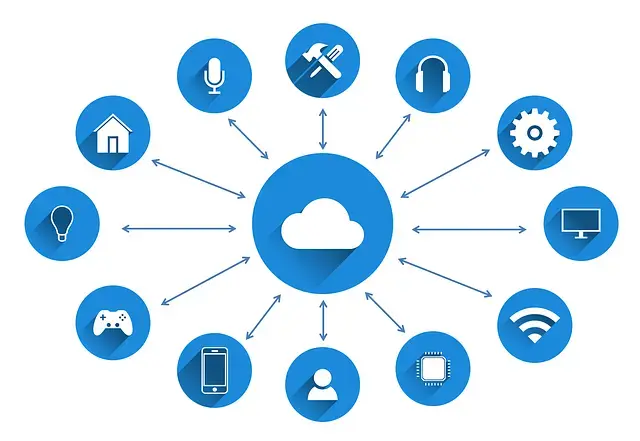In the constantly evolving landscape of Information Technology (IT), the role of network engineers remains pivotal. As businesses increasingly rely on digital infrastructure, network engineers are the unsung heroes ensuring seamless connectivity and the smooth functioning of IT systems.
In this article, we’ll explore the multifaceted role of network engineers in modern IT and why their skills are more crucial than ever.
Understanding the Network Engineer’s Role
The role of a network engineer in modern IT is multifaceted and evolving, reflecting the rapid changes in technology and business needs.
Here’s an overview of key aspects of this role:
- Design and Implementation of Networks: Network engineers are responsible for designing and setting up networks that meet the organization’s needs. This includes selecting appropriate hardware and software, configuring routers, switches, and other networking devices, and ensuring the network supports required protocols and services.
- Maintenance and Troubleshooting: Regular maintenance of the network is vital to ensure its optimal performance. Network engineers monitor network health, perform updates, and quickly troubleshoot and resolve issues to minimize downtime.
- Security: With the increasing prevalence of cyber threats, network security has become a critical aspect of the network engineer’s role. This includes configuring firewalls, intrusion detection systems, implementing secure protocols, and staying up-to-date with the latest security trends and threats.
- Cloud Networking: As more organizations move to cloud-based services, network engineers need to be skilled in cloud networking concepts. This involves understanding how to design, implement, and manage networks in cloud environments, including public, private, and hybrid clouds.
- Automation and Orchestration: Automation in network management has become increasingly important. Network engineers are expected to use tools and scripting languages (like Python) to automate repetitive tasks, improve efficiency, and reduce the potential for human error.
- SDN and NFV: Software-Defined Networking (SDN) and Network Functions Virtualization (NFV) are transforming traditional network architecture. Network engineers must understand these technologies to build more flexible and scalable networks.
- Wireless and Mobile Networking: With the proliferation of mobile devices, network engineers need expertise in wireless technologies and mobile network management, including Wi-Fi 6, 5G, and beyond.
- Capacity Planning and Performance Management: Engineers are responsible for ensuring that the network can handle current and future traffic loads. This involves analyzing network usage, planning for increased demand, and optimizing performance.
- Interpersonal and Business Skills: Beyond technical skills, network engineers often need good communication and project management skills. They must be able to collaborate with other IT professionals, vendors, and business stakeholders, and often need to explain complex technical concepts in understandable terms.
- Continual Learning and Adaptation: The field of networking is continually evolving. Network engineers must stay informed about new technologies, standards, and best practices through ongoing education and professional development.
- Compliance and Regulations: Understanding and adhering to relevant laws, policies, and regulations, such as GDPR for data protection, is also a crucial part of the role.
In the rapidly evolving IT landscape, the role of network engineers continues to expand and adapt, requiring a blend of technical expertise, strategic planning, and a proactive approach to staying abreast of technological advancements.
Evolving Role in the Age of Cloud Computing and IoT
The evolving role of various sectors and professionals in the age of Cloud Computing and IoT (Internet of Things) reflects a significant transformation driven by these technologies.

Overview of how Cloud Computing and IoT are reshaping different areas:
- Business Operations and Strategies:
- Data-Driven Decision Making: With IoT generating vast amounts of data, businesses can leverage this information for more informed decision-making, using cloud-based analytics and AI tools.
- New Business Models: The combination of cloud and IoT enables innovative business models like anything-as-a-service (XaaS), where products and services are offered over the internet.
- Enhanced Customer Experience: Businesses can use IoT to gather customer data and use cloud computing to analyze and personalize customer experiences.
- IT Industry and Workforce:
- Shift in Skills Demand: There’s a growing need for skills in cloud architecture, data analytics, IoT security, and machine learning.
- Cloud and IoT Integration: IT professionals are increasingly tasked with integrating IoT devices with cloud platforms, ensuring smooth data flow and processing.
- Cybersecurity Focus: The expansion of IoT devices increases vulnerability points, necessitating advanced cybersecurity measures.
- Healthcare:
- Remote Monitoring and Telemedicine: IoT devices enable continuous monitoring of patients’ health, and cloud computing facilitates remote diagnosis and consultations.
- Data Management and Analysis: The healthcare sector can use cloud services to store and analyze large volumes of medical data, improving research and treatment plans.
- Manufacturing and Supply Chain:
- Smart Manufacturing: IoT devices monitor and optimize manufacturing processes, while cloud computing provides the infrastructure for managing these systems.
- Supply Chain Optimization: Real-time tracking of goods with IoT devices, combined with cloud-based analytics, improves supply chain efficiency.
- Smart Cities and Infrastructure:
- Urban Management: IoT devices collect data on traffic, energy use, and other urban dynamics, with cloud computing facilitating the management of this data for city planning and management.
- Sustainable Development: IoT and cloud computing contribute to more sustainable resource management and reduced environmental impact.
- Education:
- Enhanced Learning Experiences: Cloud computing offers scalable resources for online learning platforms, while IoT can create interactive and personalized learning environments.
- Data-Driven Education Policies: IoT devices can provide data to analyze and improve education systems, supported by cloud computing infrastructure.
- Consumer Lifestyle:
- Smart Homes: IoT devices like thermostats, lights, and security systems are managed through cloud-based platforms, offering convenience and energy efficiency.
- Personal Health and Fitness: Wearable IoT devices track health and fitness metrics, with data stored and analyzed in the cloud.
- Environmental Monitoring and Sustainability:
- Climate and Environmental Data Analysis: IoT sensors gather environmental data, which is then analyzed via cloud platforms to inform sustainability efforts and policies.
The Need for Continuous Learning
Need for Continuous Learning is a topic that underscores the evolving landscape of information technology (IT) and the critical role continuous learning plays for network engineers. The rapid advancement in technology, especially in the areas of networking and IT infrastructure, demands that professionals in this field stay abreast of the latest developments to remain effective and competitive.
Some key points that might be included in a discussion or an article on this topic:
- Technological Evolution: The IT industry is characterized by rapid changes in technology. Innovations like cloud computing, Internet of Things (IoT), 5G, software-defined networking (SDN), and network function virtualization (NFV) have dramatically altered the network landscape. Network engineers need to understand and adapt to these changes to design, implement, and manage modern networks effectively.
- Security Concerns: With the increasing number of cyber threats, network security has become more complex and vital. Continuous learning is essential for network engineers to understand the latest security threats, vulnerabilities, and mitigation strategies to protect organizational data and infrastructure.
- Certification Updates: Many network engineers rely on certifications (like Cisco’s CCNA/CCNP/CCIE, Juniper’s JNCIA/JNCIS, or CompTIA Network+) to validate their skills. These certifications frequently update their content to reflect current industry standards and practices, requiring engineers to continually learn to maintain their certifications.
- Emerging Technologies: Areas such as artificial intelligence (AI), machine learning (ML), and blockchain are beginning to intersect with networking. Network engineers should learn about these technologies to understand how they can be leveraged for network optimization, automation, and enhanced security.
- Cloud Integration: The shift towards cloud computing requires network engineers to be proficient in cloud services and architecture. Skills in cloud-based networking, hybrid environments, and cloud security are increasingly important.
- Automation and Orchestration: With the growing need for efficiency, network automation and orchestration are becoming essential skills. Learning programming languages like Python and technologies like Ansible, and understanding API interactions are now part of the modern network engineer’s toolkit.
- Soft Skills and Business Acumen: Apart from technical skills, system engineers need to develop soft skills such as problem-solving, communication, and project management. Understanding the business context in which they operate also enables them to align network strategies with business goals.
- Professional Development and Career Growth: Continuous learning not only keeps network engineers current with the latest technologies but also opens up new career opportunities, such as roles in network architecture, cybersecurity, and IT management.
- Community Engagement and Networking: Engaging with professional communities, attending conferences, webinars, and workshops, and participating in forums and online discussions can provide network engineers with exposure to new ideas and trends.
- Adapting to Regulatory Changes: Regulations and compliance standards (like GDPR, HIPAA) can have significant impacts on network architecture and data management practices. Staying informed about these changes is crucial for legal compliance and effective network management.
Professional Development
The various ways network engineers can grow their skills and knowledge to stay relevant and effective in the rapidly evolving field of information technology. This field was undergoing significant transformations due to advancements in technology and changes in business needs.
Some key areas of focus for professional development:
Emerging Technologies
- Cloud Networking: Skills in cloud services like AWS, Azure, or Google Cloud are crucial as many organizations move to cloud-based solutions.
- Software-Defined Networking (SDN): Understanding how to manage systems that are controlled through software is becoming increasingly important.
- Network Function Virtualization (NFV): This involves managing system services through virtualization, reducing reliance on traditional hardware.
2. Cybersecurity Skills
- With the rise of cyber threats, network engineers must be versed in security protocols, threat detection, and mitigation strategies.
- Knowledge of secure system architecture and familiarity with tools for monitoring and defending against attacks is essential.
3. Automation and Orchestration
- Learning scripting languages like Python for automation of routine tasks.
- Understanding orchestration tools and platforms to manage complex system operations efficiently.
4. Data Analytics and AI Integration
- Leveraging data analytics for network optimization and predictive maintenance.
- Understanding the basics of AI and machine learning and how they can be applied to network management and security.
5. 5G and IoT
- Staying updated with the latest developments in 5G technology.
- Understanding the complexities of IoT (Internet of Things) and how it impacts system infrastructure.
6. Soft Skills and Business Acumen
- Effective communication, project management, and leadership skills.
- Understanding the business context of networking to align IT strategies with business goals.
7. Continuous Learning and Certifications
- Pursuing relevant certifications (e.g., CCNA, CCNP, CISSP, AWS Certified Solutions Architect).
- Staying updated with the latest trends and technologies through webinars, workshops, and industry conferences.
8. Collaboration and Networking
- Engaging with professional communities, online forums, and attending industry events.
- Sharing knowledge and learning from peers within the industry.
9. Specialization vs. Versatility
- Deciding whether to specialize in a specific area (like security, cloud networking) or develop a broad range of skills across the field.
10. Ethical and Regulatory Compliance
- Understanding the importance of ethical practices in network engineering.
- Keeping abreast of laws and regulations affecting IT infrastructure, such as data protection laws.



